FLM6210 - Cinemas in Contemporary China - 2022/23
Section outline
-
MODULIE DESCRIPTION
Taking contemporary Chinese cinema and moving image as case studies, this module examines the concepts of national cinema, world cinema, global auteurs, generational cinema, independent cinema, the national and the transnational, as well as localized genres and aesthetics in non-Western cinema. While the People's Republic of China (PRC) is now the world's second-largest film industry in terms of revenue, as perhaps befits its putative status as the world's largest economy, cinema and moving image culture are increasingly transnational, collaborative, multi-platform. This course will not only explore the commercial cinema but also independent practices and moving image art. It will mainly examine the practices in mainland China since the 1980s, but the practices in Taiwan and Hong Kong will also be discussed, to problematise notions of national, regional, transnational and world cinema.
Semester A | Level 6 | 15 Credits
Lecture and Seminar: Thursday 11:00-13:00 hr.
Classroom: Bancroft:1.02.6
CONVENOR: DR. KIKI TIANQI YU
Kiki Office hours:
Thursday 2-3pm at ArtsOne G25.C or Friday 10-11am online through TEAMS
Please make an appointment through kiki.yu@qmul.ac.uk or speak to Kiki in advance.
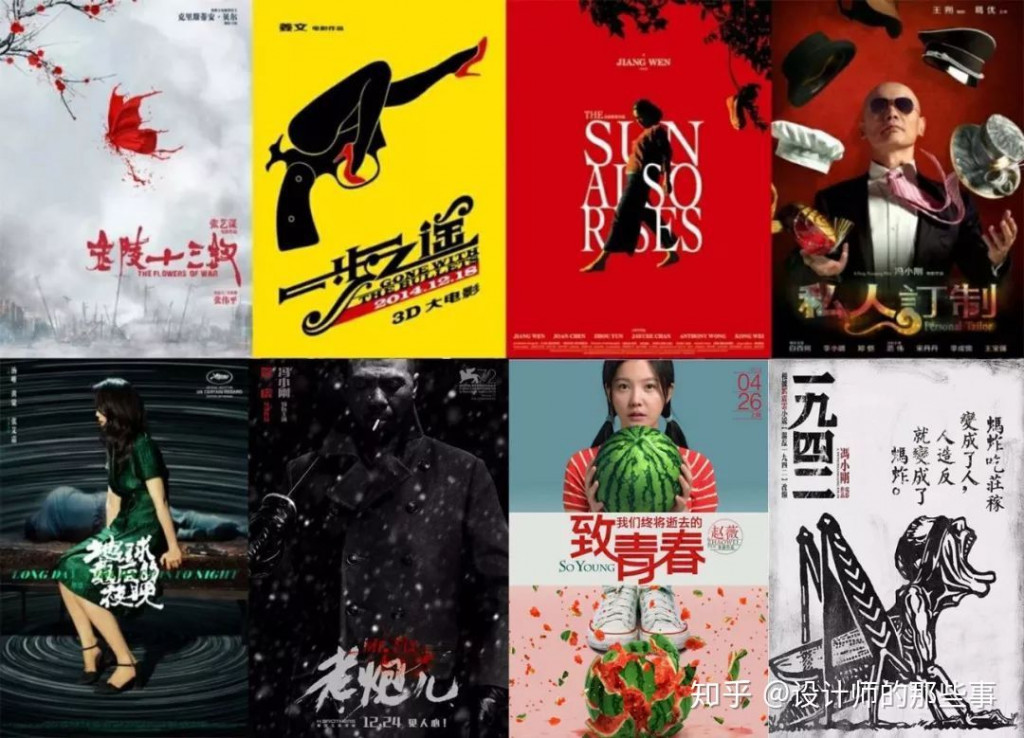
-
4.2 MB
-
PLEASE SUBMIT YOUR ASSIGNMENT HERE
1. Group project 25%:
Two or three students work in a group to curate a film festival programme on a specific theme (discuss with the lecturer). Write a 1000 words programme note, plus the festival schedule and design a poster. The programme note must address: What is the theme? Why do you choose it? What is your selection of films or directors? How will they be presented: how many days/sections and ideal venue? Are you planning to design extra activities to accompany the programme to further engage the audience? If so, what are they?
DEADLINE: 19 December 2022 Sunday 11:55pm
SUBMISSION INSTRUCTION:
One student of the group submit on behalf of the whole group.
Please put all group members' names and student numbers on the cover sheet and the in the assignment document.
-
2. Individual essay (3000 words) 75%:
To analyse one film screened in class and you must choose one of the themes covered in the module as the framework and engage with two key notions discussed in class. It is to demonstrate your skills in research, textual and contextual analysis, and scholarly argumentation.
DEADLINE: 8 January 2023 Sunday 11:55pm
Notes on referencing: Please ensure you follow the guidelines on referencing and writing a bibliography set out in section 5.2 of the SLLF Undergraduate Handbook.
-
-
The first week will examine how cinemas in contemporary China problematise the concepts of ‘national cinema’, ‘world cinema’, 'third cinema', and discuss different approaches to understand the so-called ‘Chinese cinema’. It will also provide a brief history of Chinese cinemas and explore how to understand cinemas in contemporary China in relation to its multi-layered cultural and political histories.
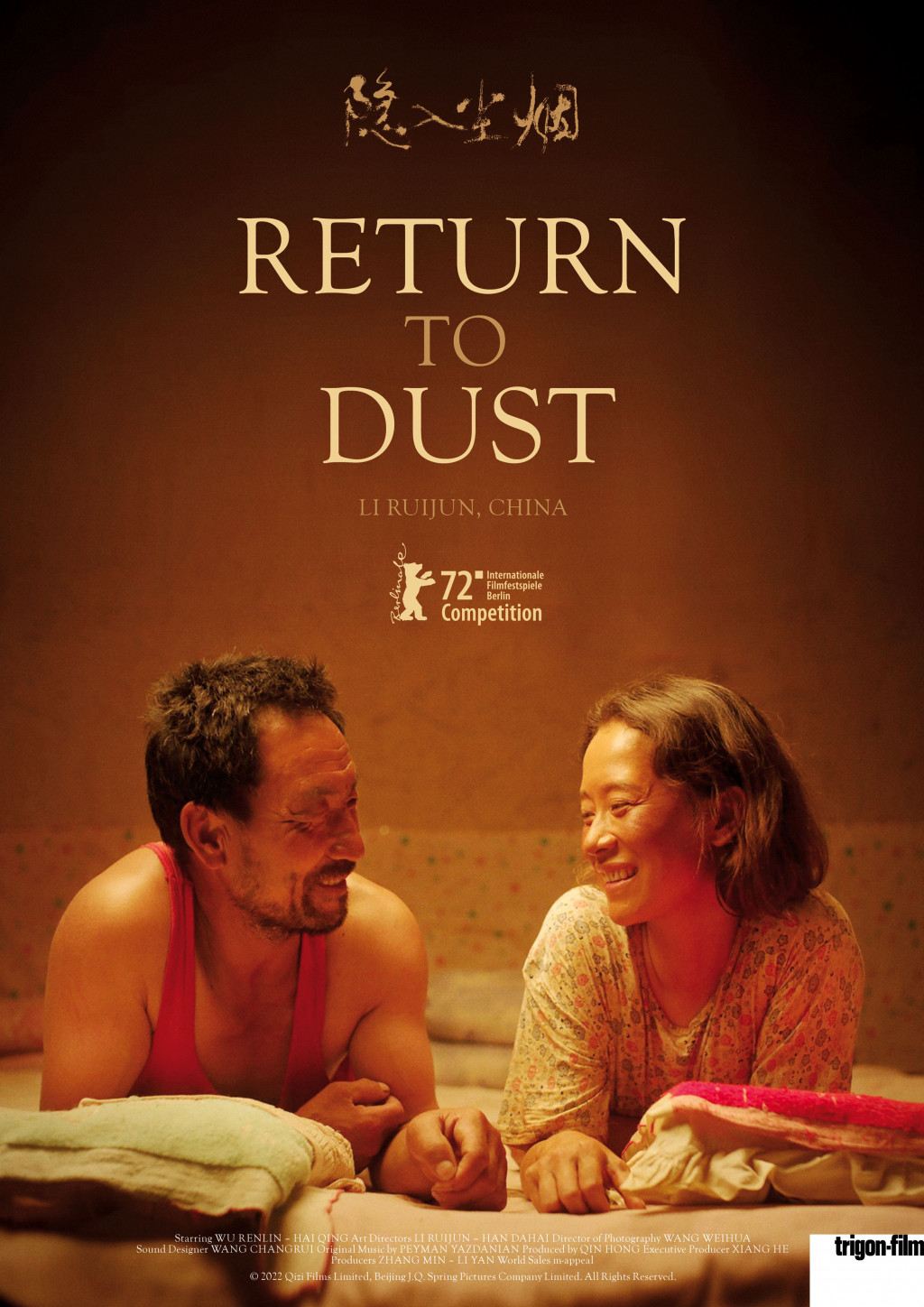
Screening: Return to Dust, dir. Li Ruijun, 2022
Link: https://www.dandanzan10.top/dianying/105218.html
Additional viewing: Spring in a small town, dir. Fei Mu, 1948
Link:https://learningonscreen.ac.uk/ondemand/index.php/prog/0A43CB66?bcast=116027932
Login to Box of Broadcast through searching institution QMUL.
Reading:
Ewa Mazierska, “World cinema, third cinema”, in Studies in World Cinema 1 (2020) 14-21.
Additional reading:
Zhang, Zhen. “An Amorous History of the Silver Screen: The Actress As Vernacular
Embodiment in Early Chinese Film Culture”, Camera Obscura, 48 (Volume 16, Number 3),
2001, pp. 228-263.
Paul Clark, “Artists, Cadres, and Audiences: Chinese Socialist Cinema, 1949-1979” in A
Companion to Chinese Cinema, edited by Zhang, Yingjin. Wiley-Blackwell, 2012.
-
- Please read:
- Chapter 2 Transplanting Melodrama: Observations on the Emergence of Early Chinese Narrative Film
- Chapter 3 Artists, Cadres, and Audiences: Chinese Socialist Cinema, 1949–1978
- Chapter 5 Hong Kong Cinema Before 1980
-
5.9 MB
-
This week will discuss the 5th generation director emerged in the 1980s. It will explore the notion of generational cinema in China within the context of world cinema and the production of global auteurs by international film festivals.
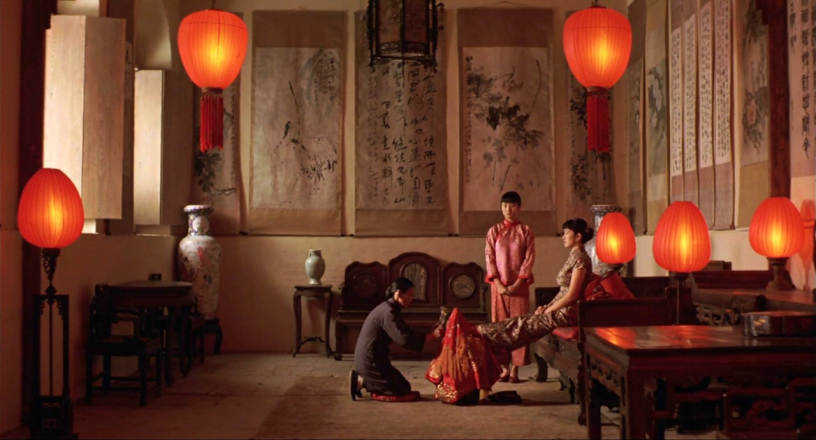
Screening: Raise the Red Lantern, dir. Zhang Yimou, 1991
Link to watch the full film: https://www.youtube.com/watch?v=BMwHE8Po-oc ;
Reading:
Elsaesser, Thomas. ‘The Global Author: Control, Creative Constraints and Performative Self Contradiction’ in The Global Auteur: The Politics of Authorship in 21st Century Cinema, Bloomsbury Academic, 2016.
Reynaud, Berenice. “China on the set with Zhang Yimou” in Sight & Sound (inc. Monthly Film Bulletin) Volume: 1 Issue 3 (1991) ISSN: 0037-4806 Online ISSN: 2515-5164
https://reader-exacteditions-com.ezproxy.library.qmul.ac.uk/issues/58124/spread/29
Tan Ye and Zhang Yimou, “From the Fifth to the Sixth Generation: An Interview with Zhang Yimou” in Film Quarterly, Winter, 1999-2000, Vol. 53, No. 2 (Winter, 1999-2000), pp. 2-13.
-
2.3 MB
-
This week will explore works by the 6th generation directors, led by Wang Xiaoshuai, Jiang Wen, Lou Ye and Jia Zhangke. It will examine how their cinema differs from the previous generation in terms of themes and aesthetics. It will also contextualise their films in the local underground and independent cinema, in relation to censorship and film policy.
Screening: Still Life, dir. Jia Zhangke, 2016
Link to the film: https://www.youtube.com/watch?v=6kIWx0e_VKQ&t=708s ;

Reading:
Cecília Mello, “Landscape painting, Chinese philosophy and the aesthetic innovation of Still Life" in The cinema of Jia Zhangke : realism and memory in Chinese film, Bloomsbury Academic, 2019
Zhang, Yingjin. “Rebel without a Cause? China’s New Urban Generation and Postsocialist Filmmaking.” In The Urban Generation Chinese Cinema and Society at the Turn of the Twenty-first Century, edited by Zhang Zhen, 49-80. Durham and London: Duke University Press, 2007.
Additional reading:
Berry, Michael. Jia Zhangke's 'Hometown Trilogy': Xiao Wu, Platform, Unknown Pleasures. Bloomsbury Academic, 2009.
-
3.9 MB
-
This week will focus on the rise of local film industry and productions of local blockbusters. Taking Feng Xiaogang’s New Year films and Zhang Yimou’s martial art cinema as examples, it will discuss how local blockbusters construct national identity and create national sentiments. It will also discuss new forms of main-melody films such as the recent Youth, My Country, My People, Forever Young, and Youth, and the first successful blockbuster sci-fi Wandering Earth (2019).

Screening: Youth, dir. Feng Xiaogang, 2017
Link:
Suggested viewing: The Wandering Earth, dir. Fan Guo/Frant Gwo, 2019 (On Netflix)
Reading:
Emilie Yueh-yu Yeh & Darrell William Davis (2008) “Re-nationalizing China's film industry: case study on the China Film Group and film marketization”, Journal of Chinese Cinemas, 2:1, 37-51, DOI: 10.1386/jcc.2.1.37_1
Zhu, Ying. “New Year Film as Chinese Blockbuster: From Feng Xiaogang’s Contemporary Urban Comedy to Zhang Yimou’s Period Drama” in Art, Politics, and Commerce in Chinese Cinema, edited by Ying Zhu, Stanley Rosen, Hong Kong University Press, 2010.
Additional reading:
Rosen, Stanley. “Film and Society in China: The Logic of the Market”, in A Companion to Chinese Cinema, edited by Yingjing Zhang, Wiley-Blackwell, 2012.
Lu, Yi. “ The malling of the movies: Film exhibition reforms, multiplexes, and film consumption in the new millennium in urban China”, in Journal of Chinese Cinemas, 10:3, 205-227, 2016. DOI: 10.1080/17508061.2016.1163883
-
3.5 MB
-
This week will focus on an essential part of Chinese independent cinema - independent documentary that emerged at the end of 1980s. The availability of DV camera on the retail market in the late 1990s has made documentary filmmaking accessible to individual amateurs and largely facilitated the long repressed personal filmmaking. This week will discuss independent documentary as personal expression and social engagement in the still politically repressed China.

Screening: Nostalgia, dir. Shu Haolun, 2003
trailer: https://www.youtube.com/watch?time_continue=1&v=iT1o43_kR1Q&feature=emb_title
Reading:
Yu, Kiki Tianqi. “Nostalgia toward Laojia: Old Home as an Imagined Past” in 'My' Self on Camera: First Person Documentary Practice in an Individualising China, Edinburgh: University of Edinburgh Press, 2019
Edwards, Dan. “From Underground Practice to Alternative Public Sphere” in Independent Chinese Documentary: Alternative Visions, Alternative Publics, Edinburgh: University of Edinburgh Press, 2015. (ebook available through QM library)
Additional reading:
Berry, Chris. "Getting real: Chinese Documentary, Chinese Postsocialism" in The Urban Generation: Chinese Cinema and Society at the Turn of the Twenty-First Century, edited by Zhang Zhen, Duke Univesity Press, 2007.
-
6.7 MB
-
This week will continue the discussion on independent documentary with a special attention to the diversifying production modes in the context of global documentary filmmaking network.
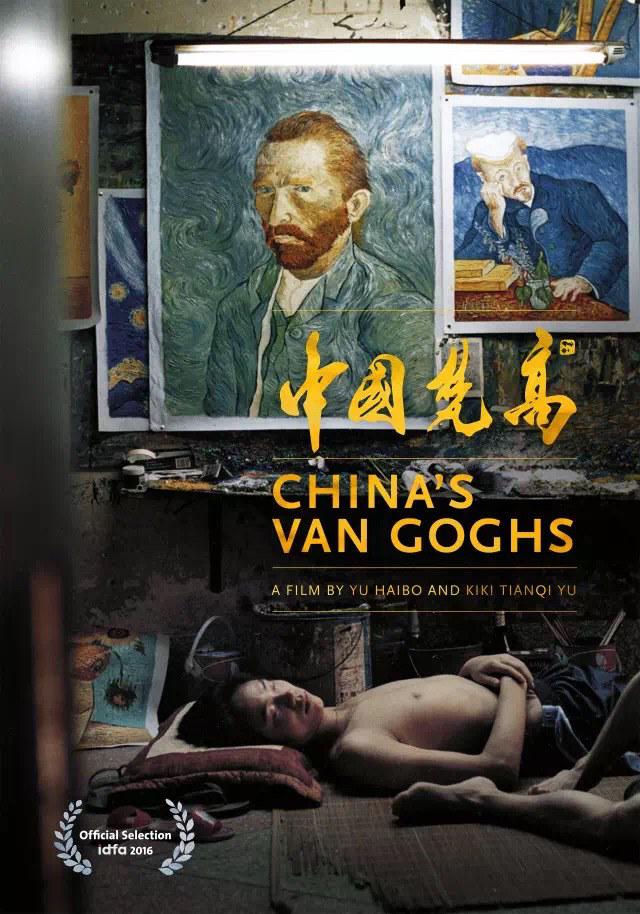
Screening: China’s van Goghs, dir. Haibo Yu & Kiki Tianqi Yu, 2016
link: https://vimeo.com/254177460
password: dafen
Reading: Camille Deprez, Judith Pernin. “Introduction” in Post-1990 Documentary: Reconfiguring Independence, Edinburgh University Press, 2015
Kiki Tianqi Yu, “Three Modes of Independent Creative Documentary Production and the Rise of the Industrial Mode” in Chinese Independent Cinema, edited by Chris Berry et al. University of Amsterdam Press, 2023.
-
This week we will discuss contemporary women’s cinema in the context of recent rise of arthouse cinema and film auteurs after the Sixth-Generation filmmakers. Cinema by women presents a valuable perspective on gender, sexuality, history, culture, society, and demonstrates interesting forms of aesthetic experimentation. The development of local independent production companies that aim to produce new auteurs provide mechanism for more young directors including women to emerge.
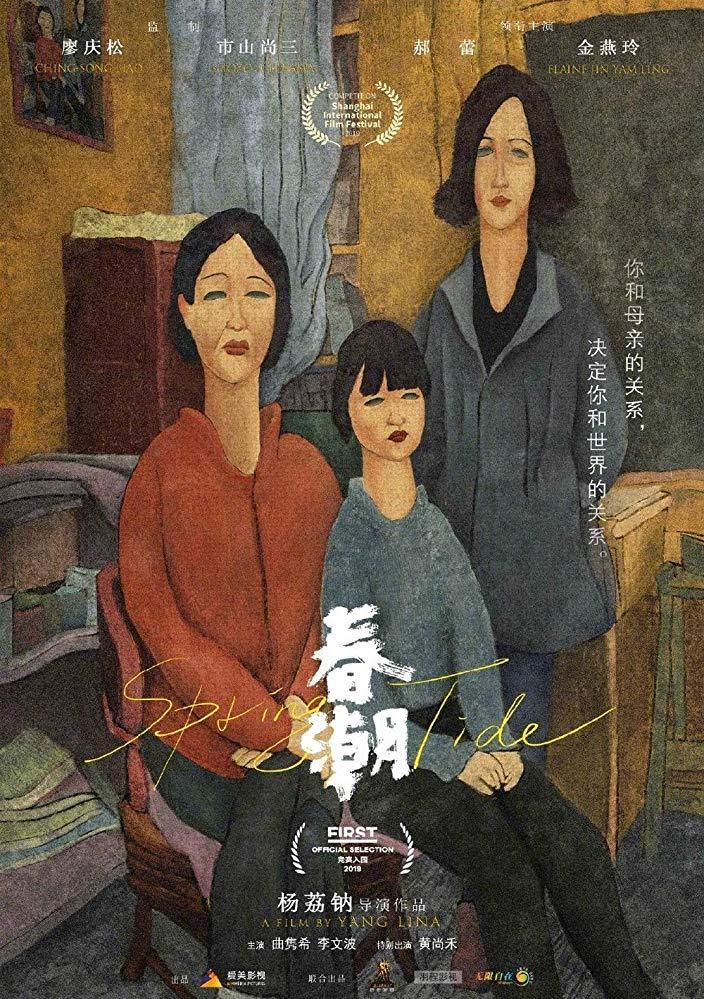
Screening: Spring Tide, dir. Yang Lina, 2019
https://www.dandanzan10.top/dianying/63875.html
Reading:
Wang, Lingzhen. “Chinese Women’s Cinema”, in A Companion to Chinese Cinema, edited
by Zhang, Yingjin. Wiley-Blackwell, 2012
Clarence Tsui, “Chinese Director Yang Lina: ‘China is getting more Patriarchal’” in Hollywood Reporter, 1 April 2013. https://www.hollywoodreporter.com/news/general-news/chinese-director-yang-lina-china-431966/
-
6.4 MB
-
1.1 MB
-
11.5 MB
-
-
This week will explore Chinese cinema in the transnational context. It will discuss transregional Sinophone film co-productions within East Asia, as well as China’s collaboration with Hollywood. Special attention will be paid to how transnational cinema gives rise to Chinese stars on the global stage, how PRC’s film censorship affects the Hollywood, and PRC’s ambition to strengthen its soft power through cinema.
Screening: Hero, dir. Zhang Yimou, 2004
Link to the film: https://learningonscreen.ac.uk/ondemand/index.php/prog/014C658B?bcast=121349197

Reading:
Berry, C. (2010), ‘What is transnational cinema? Thinking from the Chinese situation’, Transnational Cinemas 1: 2, pp. 111–127, doi: 10.1386/trac.1.2.111_1
Weiying Peng & Michael Keane (2019) China’s soft power conundrum, film coproduction, and visions of shared prosperity, International Journal of Cultural Policy, 25:7, 904-916,
DOI: 10.1080/10286632.2019.1634062
Additional readings:
Berry, Chris. “Transnational Chinese Cinema Studies”, in The Chinese Cinema Book, edited by Song Hwee Lim and Julian Ward, BFI, 2017.
Yuxing Zhou (2015) Pursuing soft power through cinema: censorship and double standards in mainland China, Journal of Chinese Cinemas, 9:3, 239-252, DOI:
10.1080/17508061.2015.1049878
-
3.0 MB
-
This week will focus on domestic diversity within China, and explore ethnic minority and dialect cinemas, through a case study on the newly raised Tibetan cinema, especially the films by Pema Tseden.
Screening: Tharlo, dir. Pema Tseden, 2017
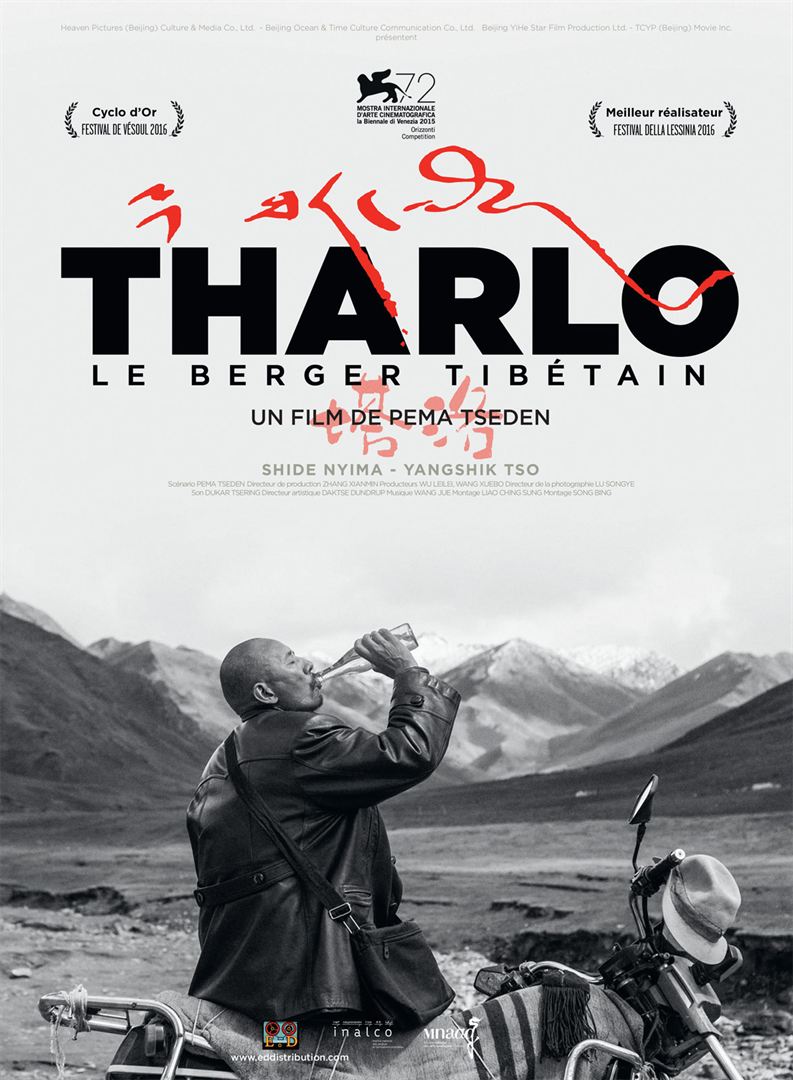
Reading:
Grewal, Anup. "Contested Tibetan landscapes in the films of Pema Tseden", Journal of Chinese Cinemas, 10:2,135-149, 2016. DOI: 10.1080/17508061.2016.1167336
Berry, Chris. “Pema Tseden and the Tibetan road movie: space and identity beyond the ‘minority nationality film’, in Journal of Chinese Cinemas, 10:2, 89-105, 2016.
DOI: 10.1080/17508061.2016.1167334Victor Fan, “Cinema of Reindividuation and Cultural Extraterritoriality: “Chinese” Dialect Cinemas and Regional Politics” in The Multilingual Screen, New Reflections on Cinema and Linguistic Difference, Bloomsbury, 2016.
-
3.1 MB